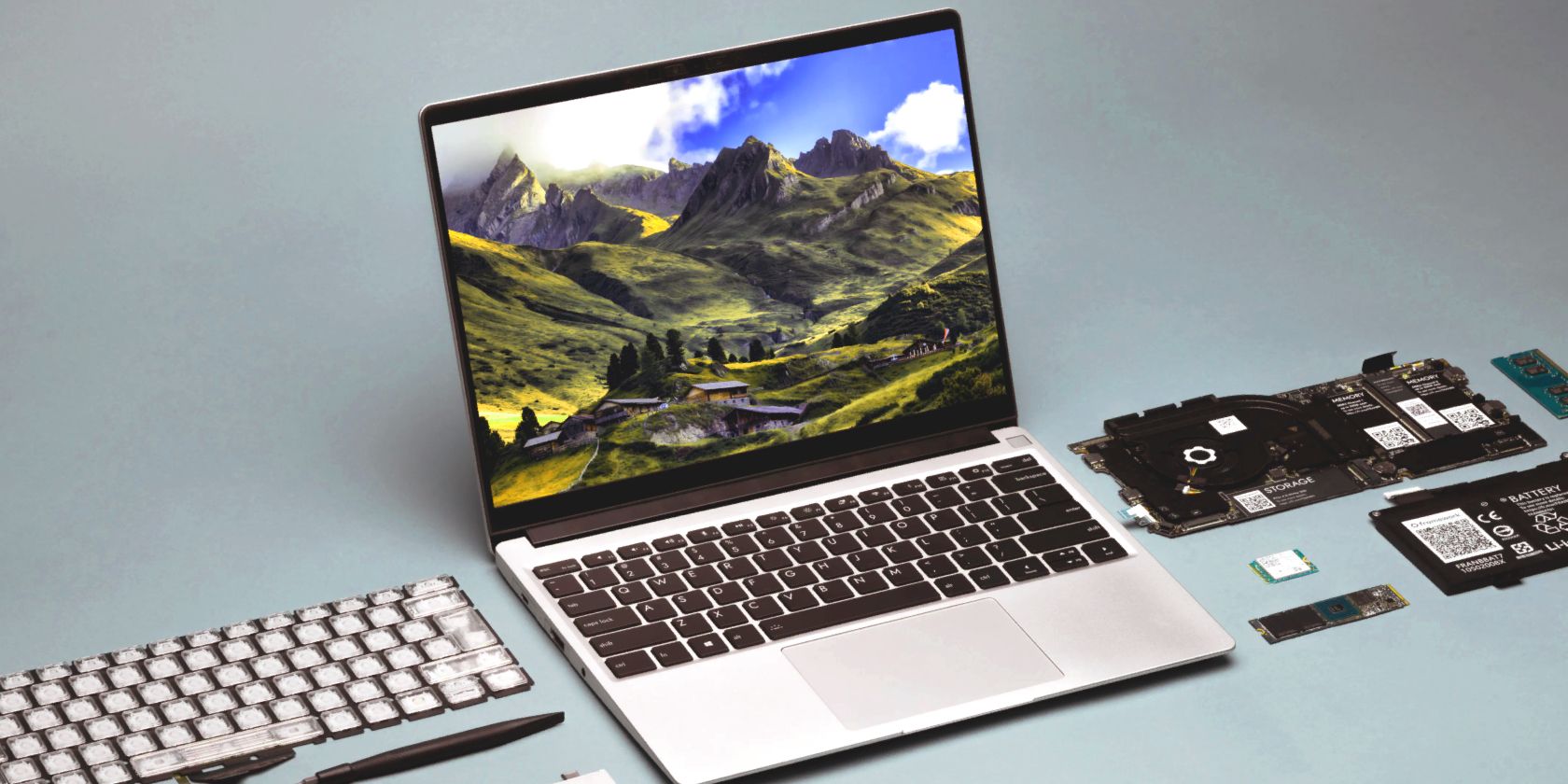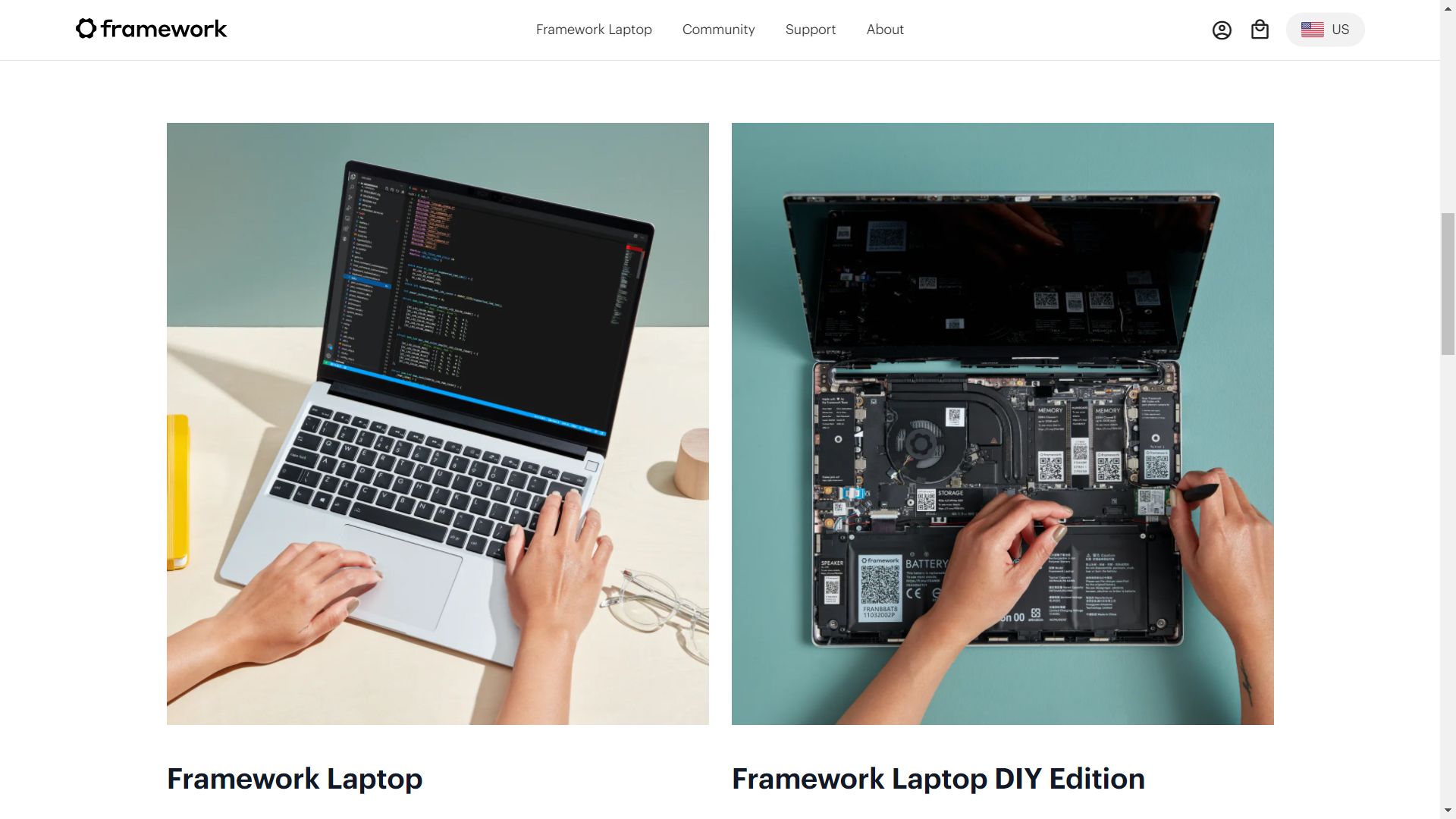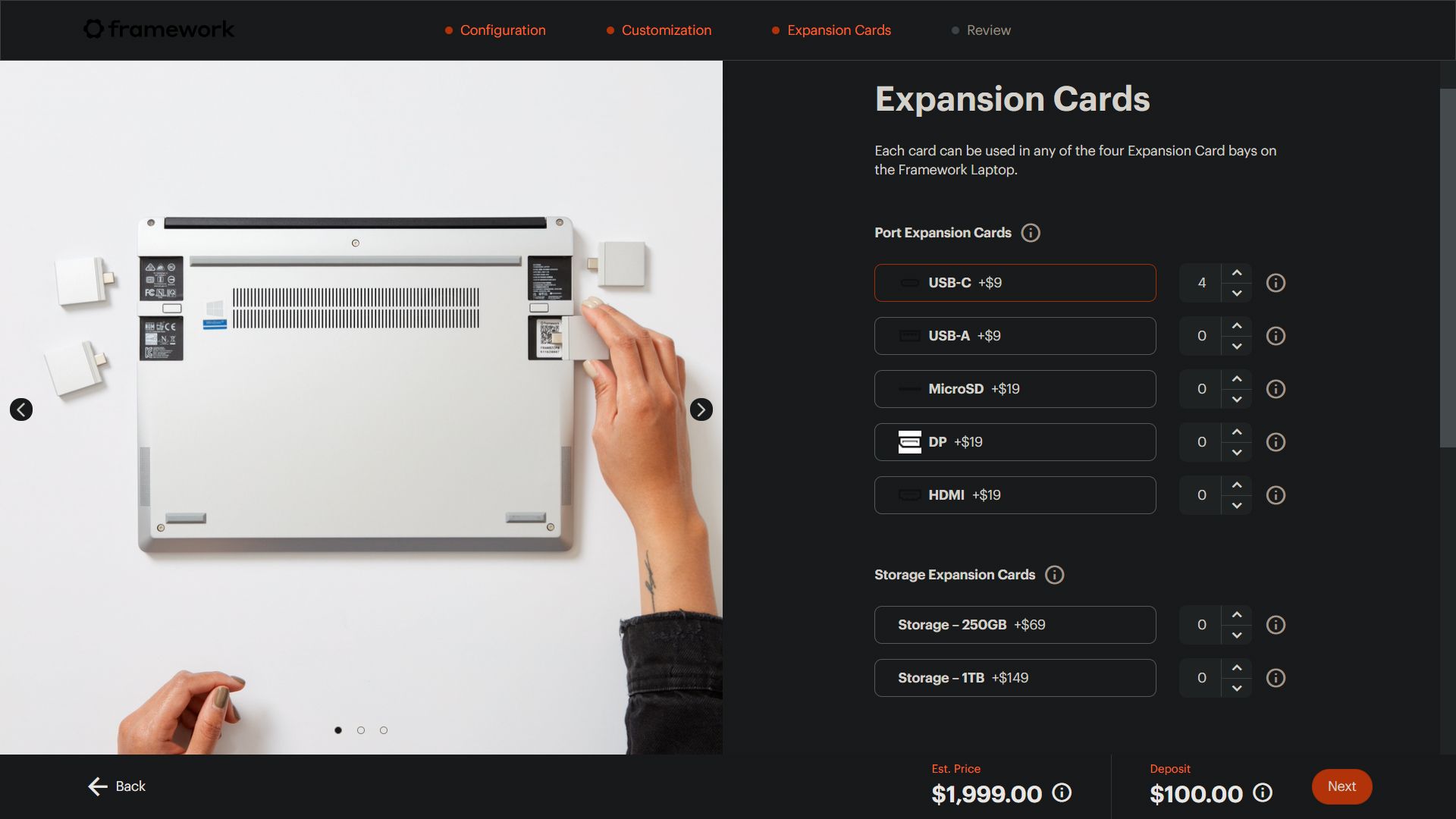The Framework Laptop is a hot new modular laptop that has tech reviewers and enthusiasts tongues wagging.
But why are people thrilled with the release of the Framework Laptop? And what makes it different from other modular laptops that came before it? Let's dig a little deeper into the Framework Laptop and see what the hype is all about.
What Is a Modular Laptop?
Many people purchase laptops for their compact size and portability. However, they have one major disadvantage over desktop computers: upgradability. CPU towers are easily upgradable, allowing them to last for up to ten years potentially.
When you have a desktop computer, you can easily upgrade any component by simply replacing it. For example, because GPUs are prohibitively expensive nowadays, many buyers buy a desktop computer without a discrete video card, or at least with just an entry-level card. They will then upgrade it later with a more powerful GPU once prices have normalized.
But if you have a laptop, you don't have this choice. For most notebook computers, you're stuck with whatever part the manufacturer installs in your device. Although some higher-end devices have upgradeable RAM and SSDs, that's about it. You can't get a better GPU or processor later down the line.
Why Aren't Modular Laptops More Popular?
Some laptop makers are selling upgradeable laptops. However, they're not what you think. These fully modular devices are designed for fieldwork use. So you'll find that these devices are thick and heavily protected as well as modular.
Dell actually introduced a fully modular laptop (more like a desktop replacement) in 2019 called the Alienware Area 51M. It's a 17-inch behemoth of a device that comes with a desktop-spec processor and GPU. Best of all, you can replace these components in the future, provided Dell releases a GPU designed for the system.
But after one year, the company stopped releasing new hardware for the Area 51M and instead focused on newer, more powerful laptops with a fixed processor and GPU.
According to some reviewers, the Area 51M was an impractical laptop. It weighed more than 8 lbs, required two power bricks, one of which weighed more than an ultralight laptop, and the fans made a lot of noise.
The classic reason manufacturers can't make a fully modular laptop is that space is at a premium when making portable devices. You can't just shoehorn a regular processor or GPU into thin and light devices, and if you try, you're going to have to compromise on either performance, size, or both.
The more cynical argument is that modular laptops make less money compared to standardized devices. This is because making removable parts cost more to research and manufacture. Companies would instead focus on laptops that cost less to produce and just force users to buy a new device when they want to upgrade.
What Is the Framework Modular Laptop, Then?
The Framework Computer company launched the Framework Laptop in 2021—and it got people excited. This is because it's the first thin and lightweight laptop featuring a fully modular build. As a result, you can change many parts in the device, from the RAM and SSDs to the motherboard and processor unit.
But it goes beyond that. You have a maximum of four ports on the computer, all of which you can choose and pick from up to nine port options. You can even replace the keyboard and the display. So if the company releases a higher resolution screen or you damaged your keyboard, it will only take a few steps to replace them.
There are a couple of downsides to all this upgradeability, though. The first one is that the laptop isn't as rigid as comparable devices. The keyboard flexes slightly when you push down on it, and the monitor twists if you push one corner to lift it.
Another downside is that it's comparatively more expensive versus laptops of similar specifications. So, if you're looking for the most powerful unit your budget can buy, this device isn't for you.
Who Is the Framework Laptop For?
If you're a computer enthusiast who wants a laptop but wants to upgrade it down the line, then this device is for you. This is also an excellent choice for businesses that need to get the most out of their equipment.
Since you can simply swap out parts as needed, you don't need to send it to the manufacturer for repair. You also don't need to buy a new laptop to upgrade any of its parts. Just look up the appropriate part number and order it from the company.
And because it's fully modular, you don't need special tools to install new parts. All you need is a screwdriver, and you're good to go. If you're not sure, you can just go to the company website and look at their instructional videos to see how it's done.
Modular Laptops Are Great, But Will the Company Last?
One big question in everyone's minds is, "Will the company last?" There have been attempts to create modular consumer laptops that didn't pan out. Naturally, those who buy into the Framework Laptop want to know if they will get updated modules in the future.
After all, the reason people buy this laptop is because of its upgradability. So, if the company stops making updated components two or three years down the line, then buying this laptop is nothing but an exercise in futility.
However, the company is founded on the principle of upgradability and repairability. Many people are hoping that they will stay true to their word and support their products for many years to come.
A Win for the Right to Repair Movement
The founders of the Framework Computer company stand by the right to repair movement. On their website, this is what they say:
"Our philosophy is that by making well-considered design tradeoffs and trusting customers and repair shops with the access and information they need, we can make fantastic devices that are still easy to repair. Even better, what we've done to enable repair also opens up upgradeability and customization. This lets you get exactly the product you need and extends usable lifetime too."
This mindset could lead other manufacturers to allow for better repairability and upgrade paths for their devices. And if most laptops have easily swappable parts, we could look forward to a future where laptops last twice as long or more. That, in turn, means we'll generate less e-waste in our lifetime.





